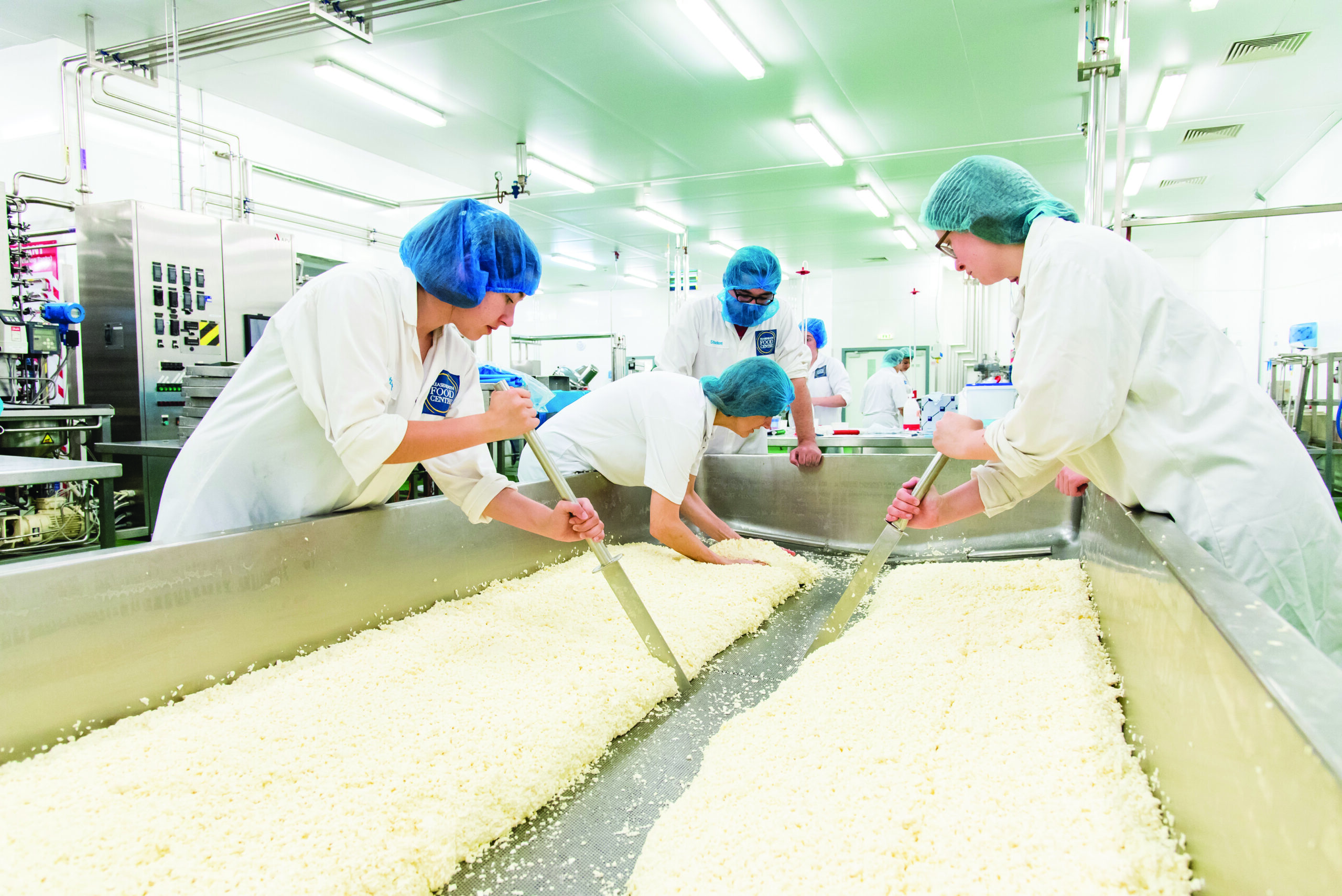Cheese Factory Melbourne: Experience the Art of Cheese
Cheese Factory Melbourne: Experience the Art of Cheese
Blog Article
A Thorough Take A Look At Cheese Production: Components, Methods, and the Future of Artisan Cheeses
The detailed procedure of cheese production is a fascinating merging of art and science, where high-quality milk, rennet, and specific bacterial cultures serve as foundational elements. As the sector increasingly focuses on sustainability and transparency, the future of artisan cheeses promises to mirror both heritage and progression.
Trick Active Ingredients in Cheese Production
A selection of important active ingredients play an essential duty in cheese production, each adding to the last item's flavor, texture, and character. The key component in cheese is milk, which can come from different sources, including cows, goats, and lamb - cheese shop melbourne. The sort of milk made use of considerably influences the cheese's taste and uniformity; for circumstances, cow's milk commonly generates creamier cheeses, while goat's milk typically generates tasty varieties
One more essential active ingredient is rennet, an enzyme utilized to curdle the milk, separating it into curds and whey. The source of rennet can be animal, vegetable, or microbial, each passing on unique characteristics to the cheese.
Salt not just improves the taste yet also serves as a preservative, hindering the development of unfavorable bacteria. Additionally, different flavor agents, such as natural herbs, seasonings, and even smoked wood, can be contributed to create distinct artisanal cheeses. Together, these active ingredients form the foundation of cheese manufacturing, setting the phase for varied and abundant cheese selections.
Traditional Cheese-Making Strategies
Utilizing conventional cheese-making strategies, artisans all over the world maintain time-honored methods that have been given with generations. These strategies commonly emphasize using premium, in your area sourced milk, which is main to the unique flavors and textures of artisanal cheeses. The process typically starts with the careful home heating of milk, complied with by the addition of cultures and rennet to assist in coagulation.
Once the curds create, they are reduced, allowing whey to drain pipes, a vital action that influences moisture content and texture. Salting is an essential facet of this process, boosting taste while also acting as a chemical.
Aging, or affinage, is an additional crucial component, during which cheeses develop their particular aromas and tastes. Craftsmens might use certain maturing environments, utilizing moisture and temperature controls to refine the cheese's profile. The dedication to these traditional methods not just sustains regional economic situations however likewise adds to the abundant diversity of cheese ranges found around the world, commemorating cultural heritage and artisanal craftsmanship.
Modern Innovations in Cheese Production
How have technological advancements transformed official statement cheese manufacturing in current years? The integration of modern-day innovation has actually transformed both the effectiveness and high quality of cheese production.
Furthermore, improvements in microbiology have actually made it possible for cheesemakers to choose details bacterial cultures and enzymes, optimizing flavor accounts and enhancing life span. Using sensor technology for checking fermentation conditions has additionally become common, enabling real-time adjustments to keep optimum atmospheres for cheese aging.

These advancements not just boost the high quality and sustainability of cheese manufacturing yet also empower artisan manufacturers to maintain conventional flavors while embracing contemporary performance. As modern technology remains to develop, the future of cheese manufacturing looks appealing, mixing practice with technology.
The Function of Terroir in Cheese
In the realm of cheese production, terroir plays a crucial role in specifying the unique characteristics of various cheeses. Terroir, a French term typically linked with red wine, encompasses the ecological aspects that affect agricultural items, including dirt structure, climate, and local plants and animals. In cheese-making, the one-of-a-kind features of the region where the milk is sourced can impart specific tastes and textures to the end product.
For circumstances, the grazing problems of dairy products animals significantly impact the milk's composition, affected by the sorts of turfs and natural herbs offered in a specific location. This differs not just in between countries yet likewise in between areas within the same country. In addition, the microbial neighborhoods present in the atmosphere add to the fermentation procedures, causing diverse profiles in flavor and aroma.
Cheeses such as Roquefort, Parmigiano-Reggiano, and Cheddar exhibit exactly how terroir can form their identities, making visit this page them distinctive and commonly secured by geographical signs. As producers progressively acknowledge the significance of terroir, there is a growing emphasis on sourcing regional ingredients and maintaining conventional practices, ensuring that each cheese truly reflects its beginning.

Future Trends in Artisan Cheeses
A noteworthy change is taking place in the craftsmen cheese industry, driven by progressing customer preferences and technical innovations. Increasingly, customers are moving toward distinct, premium items that emphasize both article sustainability and regional sourcing - cheese store melbourne. This fad is motivating artisan cheesemakers to introduce, focusing on small-batch manufacturing and making use of standard strategies while integrating contemporary technology to boost top quality and security
Furthermore, there is an expanding interest in plant-based and alternate milk products, pushing traditional cheesemakers to discover new avenues, such as cashew or almond-based cheeses. This change not only provides to nutritional constraints but additionally lines up with environmental worries regarding pet farming.
Additionally, transparency in sourcing and production processes is coming to be critical. Consumers are more informed and demand traceability, motivating manufacturers to adopt more clear labeling methods and take part in narration that highlights their methods and values.
Conclusion
To conclude, the detailed process of cheese production melds typical strategies with modern-day innovations, resulting in a diverse array of flavors and appearances. The focus on high-quality active ingredients and the impact of terroir highlight the artistry associated with cheese production. As the market advances, a concentrate on sustainability and transparency will likely shape the future of artisan cheeses, catering to a significantly discerning consumer base that values authenticity and craftsmanship in milk products.
Report this page